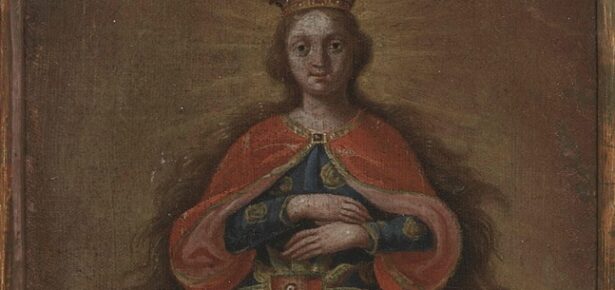“Medieval theologians described a tripartite process of ensoulment over the course of fetal development. The poet Dante Alighieri gives one of the most cogent explanations of this concept, which goes back to Aristotle, via Thomas Aquinas, Albertus Magnus, and others. Dante’s description of when God breathes life into the fetus takes place in the Divine Comedy on the sixth terrace of Purgatory. Dante’s Purgatory is imagined as an island-mountain organized according to the Seven Deadly Sins. On the terrace of gluttony, sinners circle past an offshoot of the Tree of Knowledge, which produces a delicious odor that makes them excruciatingly hungry and emaciated in appearance. Dante asks his two guides, the poets Virgil and Statius, how the disembodied spirits can become so thin if they do not need nourishment. Statius responds with a digression on sexual reproduction and embryology (Purgatorio 25.37-108) in order to account for the continuity between humans’ mortal bodies and their aerial bodies in Purgatory. He explains how the fetus takes shape and passes through three stages, first being endowed with a soul like that of a plant, and then with that of an animal, at which point the bodily organs are fashioned. Only after the articulation of the brain does God breathe into it a specifically human spirit, capable of self-reflection and speech. This new soul then combines with the two already inhabiting in the body, and after the person’s death, when the soul’s connection to the body is severed, it radiates around itself an ombra, a sort of shadow or mirror body that continuously reflects its inner condition.” —Olivia Holmes, “When was an embryo considered a person in the Middle Ages?,” Cambridge University Press, January 31, 2023 (retrieved December 30, 2023)
“Newly Uncovered DNA Evidence Frees Thousands Of Damned Souls From Hell”
What Rod Dreher Ought to Know About Dante and Same-Sex Love

“Dante saved my life,” testifies Rod Dreher, senior editor and blogger at The American Conservative, in his recent book, How Dante Can Save Your Life (Simon & Schuster, 2015) about how the poet’s Divine Comedy can save yours as well. His soul-baring account of how Dante Alighieri and two other spiritual guides — a Christian Orthodox priest and an evangelical therapist –helped him escape a dark wood of stress-induced depression and physical illness is smart, moving, and thoroughly engaging. Dreher’s Dante, like Virgil in the poem, does the lion’s share of the guiding, and so earns top billing and occupies most of the narrative’s prime real estate. In showing how the poem brought deeper understanding of himself and his relationships with his father, sister, and God, and in sharing the substance of those life lessons with readers (mostly in appendices to the chapters), the author does not disappoint.
“For those of us who have studied, taught, and written on Dante’s works and their legacy over many years, Dreher’s understanding and use of the Commedia will undoubtedly raise legitimate doubts and objections. However, I found myself more often than not nodding in recognition at his deft discussion of characters, scenes, and themes of the poem. Most of his sharpest points pierce the surface of famous inhabitants of Hell — amorous Francesca, proud Farinata, worldly Brunetto, and megalomaniacal Ulysses are among the highlights; oddly for a book on rescuing lives and souls, he devotes fewer words to the saved individuals in Purgatory and Paradise.” […] –Guy P. Raffa, Pop Matters, January 21, 2016


